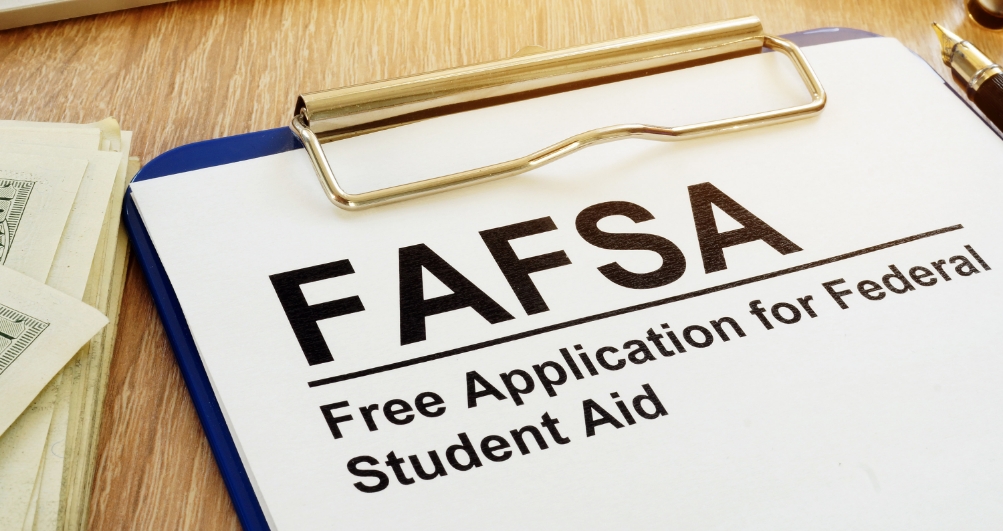The USA is home to some of the best-known and most reputable universities in the world, from MIT to Harvard. But that elite status comes at a price, literally, as the U.S. is also one of the most expensive countries for higher education in the world.
If you're an international student, you may want to consider financial aid to help cover the cost of attendance. Financial aid can be even more pressing for international students because they are usually limited when it comes to work eligibility in America. Luckily, there is help available. We cover some options below.
Types of financial aid
Financial aid can make or break your chances to study in the U.S. The good news? There are a lot of different options available. Below, we discuss some popular types of financial aid for international students in America.
Need-based financial aid
The Free Application for Federal Student Aid (FAFSA) is an option if you're a U.S. citizen or green card holder. To qualify, you have to have a high school diploma or GED, enroll in an eligible degree program, have a valid Social Security Number (SSN), and certify that you aren't in default on any other federal loans and, further, that you will use the money you get for the intended purpose - your education!
Now, you may be wondering why we're talking about FAFSA in a guide for international students if it only applies to U.S. citizens or permanent residents. As with most things in life, there are exceptions to the rule. Non-citizens may be eligible for FAFSA if they have battered immigrant status, have a T-visa, or have been granted asylum or refugee status by the U.S. Citizenship and Immigration Services (USCIS), as certified by Form I-94. Discover the full list of exceptions.
If you're eligible, you can complete the FAFSA. Various types of aid may be awarded, including Pell Grants, federal student loans, and work-study programs. Beware that the conditions of these different forms of federal aid vary significantly. For example, you rarely have to pay back Pell Grants, while federal loans usually do require repayment. Learn more about FAFSA, including how financial need is determined.
If you aren't eligible for FAFSA, check whether your home country offers any financial aid options for students who want to study abroad. For example, Germany has the DAAD program, which provides financial assistance for Germans who want to study in America.
Finally, there are non-country-specific international scholarships and fellowships that you might be eligible for, like the Fulbright program. Real talk: This type of support usually hinges on academic achievement - you've been warned! Each of these programs has its own eligibility criteria and application process, so look up the details online before applying.
International student loans
If you don't qualify for a federal student loan from the U.S. government, you may still be able to get a private student loan. You can check with loan providers in your home country to see if they'll help you pay for an international education or ask U.S. lenders.
However, note that some U.S. lenders don't issue credit to foreign nationals. Some offer loopholes, for instance, if you have a U.S. citizen cosigner on your loan. Lenders that are known to issue credit to non-citizens include Sallie Mae, Ascent, Citizens Bank, College Ave, and MPOWER. Fun fact: MPOWER loans never require a cosigner.
Most students have their parents cosign their loans. However, the cosigner could also be a partner, mentor, friend, or other family member. The main requirements are that they are a U.S. citizen or permanent resident, at least 18, are creditworthy, have a low debt-to-income ratio, and earn a regular paycheck.
What if you don't know a U.S. citizen or green card holder personally? There are cosigner services available. However, these providers can be predatory. Our advice? Only use a cosigner you know and trust.
Merit scholarships
Are you the type to get straight A's, win academic awards, and rank top of the class? Then a merit scholarship could be your path to financial freedom while you study. Different schools have different types of scholarships you may be eligible for, so check what's on offer at your chosen college or university.
For example, American University has the Emerging Global Leader Scholarship, which is specifically for international students. The requirements are stringent, with preference given to students who are in the top 10% of their graduating high school class, have a TOEFL of 95+, and demonstrate commitment to leadership.
This is just one example, but you can expect other merit scholarships to be similarly demanding; after all, they're all about academic achievement. When applying, be prepared to provide documentation like your school transcripts, personal references, and records of achievements and awards.
Work-study programs
Work-study is a type of federal financial aid that you may be eligible for if you complete the FAFSA. It allows you to work part-time on campus so you can earn money to pay for school. Work-study could mean anything from working in the library as an undergraduate student to being a T.A. as a graduate student.
Beyond on-campus work-study, international students also have the possibility of Curricular Practical Training (CPT) or Optional Practical Training (OPT). In either case, your job must be related to your program of study. However, while CPT is tied to a specific job and requires an offer of employment first, OTP is generalized -no job offer is needed to register.
Financial support for living expenses
When you're studying, you don't just have tuition to pay. There are also the expenses needed to oh, survive in the world! For students, that includes things like rent and utilities or dorm fees, textbooks, insurance, transportation, and food. The exact cost will depend on the location, but you should probably estimate $1,000 to $1,500 per month. Input your target destination into a cost of living calculator for a more exact estimate.
Some types of funding are designed specifically to address these "extra" costs. For example, federal PLUS loans are meant to cover these additional expenses. Some scholarships are likewise geared toward this need. For instance, American University's Emerging Global Leader Scholarship Program for international students covers not only full tuition but also room and board.
Whatever means you use to help support your college life, make sure you're keeping your money organized. If you use money that was meant for college expenses for something else, you might face problems or even lose the funding opportunity. Consider setting up a separate bank account for any college scholarships or funds.
Visa and eligibility
Before you start applying for loans, scholarships, and other financial resources, one last word of caution: Remember that, as an international student, you'll need a visa to study in the U.S.! For students attending a college, university, or similar institution of higher education, that means getting an F-1 student visa.
Our guide walks you through the application process, step by step. Pro tip: Check out the eligibility requirements before you start all the paperwork. For example, there is an English proficiency requirement. Plus, you'll have to provide proof that you can support yourself financially during your studies (hello, loans and scholarships!).
Coordinating financial aid
If you're interested in getting institutional aid from your college or university of choice, the CSS profile is a must. Having a profile will help schools decide how much money to give you. See if your school requires a CSS aid form. If so, make sure to complete it by the given deadline - this usually means doing it in your senior year of high school.
Navigating your path to financial success as an international student
While financial aid options for international students may be more limited since they rarely qualify for federal aid, don't give up! There are many funding opportunities available to you - just check out the guide above for inspiration.
For more tips on applying to college and, just as importantly, thriving once you're there, trust College Rover.












.jpg)









